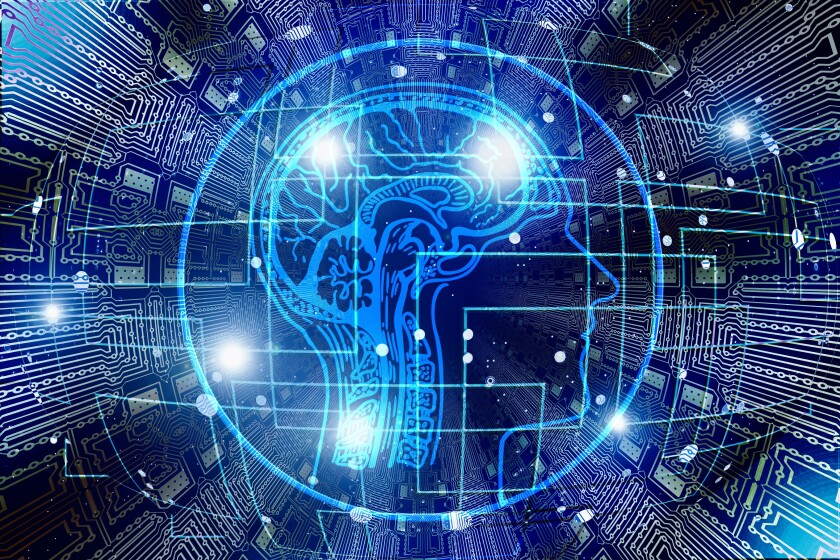I would like to start this article with my predictions for the world of AI and machine learning patents in 2023, based on my studies and past work in this technical field between 2020 and 2022:
Increased patent activity in the field of natural language processing (NLP) and machine learning. As these technologies become more advanced and widely adopted, there will be a surge in patent applications related to NLP and machine learning algorithms.
More patents related to machine learning in healthcare. Machine learning has the potential to revolutionise the healthcare industry, and we can expect to see an increase in patents related to machine learning applications in healthcare, such as predicting patient outcomes or diagnosing diseases.
Growth in the number of patents related to autonomous vehicles. As self-driving cars and other autonomous vehicles become more prevalent, there will be a rise in the number of patents related to the technology behind these vehicles, including machine learning algorithms and sensor systems.
More patents related to the integration of AI and the internet of things (IoT). As AI and the IoT become more closely intertwined, we can expect to see an increase in patents related to the integration of these technologies, such as using machine learning to analyse data collected from IoT devices.
More patents related to the ethical and societal implications of AI. As AI becomes more widespread, there will be a need to address the ethical and societal implications of these technologies. We can expect to see an increase in patents related to the ethical use of AI and the development of frameworks to govern the use of these technologies.
Ethical and societal implications of AI
There are many ethical and societal implications of AI inventions that are worth considering. Some of the most significant ones include:
Bias and discrimination
AI systems can sometimes reflect the biases of the data they are trained on, leading to discriminatory outcomes. There is a risk that AI systems could be biased, either intentionally or unintentionally, in ways that could have negative impacts on certain groups of people. For example, facial recognition systems have been found to be less accurate at identifying people with darker skin tones, which could lead to unequal treatment or disproportionate impact on these groups.
Privacy concerns
AI systems often rely on large amounts of data to function, which raises concerns about data privacy and the potential for this data to be used in ways that individuals do not agree with or that could be harmful to them.
Job displacement
As AI systems become increasingly advanced, there is a risk that they could automate certain jobs, leading to unemployment for some workers. This could have significant societal impacts, including increased inequality and disruption of entire industries.
Autonomy and agency
AI systems may make decisions on their own, leading to questions about accountability and responsibility. If an AI system makes a decision that has negative consequences, it may be difficult to understand why the decision was made and who is responsible.
Security and control
AI systems can be vulnerable to hacking and manipulation, leading to concerns about security and control. As AI systems become more advanced and integrated into society, there is a risk that they could become too powerful and difficult to control. This could lead to unintended consequences and raise questions about who is responsible when things go wrong
It is important for researchers, developers, and policymakers to carefully consider these and other ethical and societal implications as they develop and deploy AI systems.
An increase in patents related to the ethical use of AI
There has been a significant increase in the number of patents related to the ethical use of artificial intelligence (AI) and the development of frameworks in recent years. This trend reflects the growing recognition of the importance of ethical considerations in the development and deployment of AI technologies.
One key area in which patents related to ethical AI have been filed is in the development of algorithms and systems that can make ethical decisions or take ethical actions in complex situations. These patents aim to address concerns about the potential for AI to make unethical or biased decisions, and to ensure that AI systems can act in a manner that is consistent with ethical principles.
Another area in which patents related to ethical AI have been filed is in the development of frameworks and guidelines for the ethical use of AI. These patents aim to provide guidance and best practices for organisations looking to develop and deploy AI technologies in an ethical manner.
Overall, the increase in patents related to the ethical use of AI and the development of frameworks reflects the growing recognition of the importance of ethical considerations in the development and deployment of AI technologies. By addressing these concerns, organisations can ensure that they are able to develop and deploy AI technologies in a responsible and ethical manner, while also building trust and confidence among stakeholders.
There has been a growing interest in the ethical use of AI in recent years, and this has been reflected in the increasing number of patents related to this topic. The development of frameworks for the ethical use of AI can help ensure that AI systems are designed, developed, and deployed in a way that is transparent, fair, and respects the rights and values of individuals. Such frameworks can also help to address concerns about the potential negative impacts of AI on society, such as job displacement and discrimination. Some examples of frameworks that have been developed for the ethical use of AI include the IEEE Global Initiative on Ethics of Autonomous and Intelligent Systems and the European Union's Ethics Guidelines for Trustworthy AI.
There has been a trend in recent years towards the development of guidelines and frameworks for the ethical use of AI. These efforts are driven by the recognition that AI has the potential to significantly impact society and that it is important to ensure that it is used in a responsible and ethical manner. Many organisations and groups, including governments, international organisations and private companies, have been actively working on the development of frameworks for the ethical use of AI. Some of these efforts have focused on specific applications of AI, while others have taken a more general approach.
These guidelines and frameworks often address issues such as transparency, accountability, fairness, and non-discrimination, among others. It is likely that we will continue to see an increase in patents related to the ethical use of AI as the field continues to evolve and the demand for responsible and ethical use of AI grows.
Some examples of patents related to the ethical use of AI include:
Fairness and bias detection
These patents relate to the development of AI systems that can detect and mitigate biases in data and algorithms, to ensure that they are fair and unbiased. For example, Microsoft has filed a patent for an AI system that can detect and correct biases in facial recognition algorithms. In another example, IBM has developed a system which uses machine learning algorithms to identify and correct for potential biases in data sets. This helps to ensure that AI systems are not unfairly biased against certain groups of people, such as those from certain ethnicities or genders.
Some patents focus on developing AI systems that can make ethical decisions, such as one developed by DeepMind that uses a neural network to analyse the potential consequences of different actions and choose the one most likely to result in the best outcome for all parties. This can be particularly useful in areas such as healthcare, where AI systems can be used to help doctors make more informed and ethical treatment decisions.
Explainable AI
These patents relate to the development of AI systems that can explain their decision-making processes and provide a clear justification for their actions. This is important to ensure that AI systems are transparent and accountable, and do not make decisions that are difficult to understand or justify. For example, IBM has filed a patent for an AI system that can provide a natural language explanation for its decision-making processes. There are also patents that aim to make AI systems more transparent and explainable, such as one developed by Google that uses machine learning algorithms to analyse how different factors contribute to the decision-making process of an AI system. This helps to ensure that the decisions made by AI systems are more easily understood and can be examined by humans.
Responsible AI
These patents relate to the development of AI systems that are designed to be used responsibly, and that do not pose any risks to society. For example, Google has filed a patent for an AI system that can identify and mitigate risks associated with autonomous vehicles, to ensure that they are used safely.
Another example of responsible AI is the use of AI in the criminal justice system. AI algorithms have been used to predict the likelihood of someone committing a crime or reoffending, and these predictions have been used to inform sentencing and parole decisions. However, these algorithms have been criticised for replicating and exacerbating racial and social biases present in the criminal justice system. To address this, some organisations have implemented responsible AI practices, such as regularly reviewing and auditing the algorithms to ensure they are fair and unbiased.
Another example of responsible AI is the use of AI in hiring decisions. AI algorithms can be used to analyse resumes and job applications to identify the most qualified candidates. However, these algorithms may be biased against certain groups, such as women or people of colour, if they are trained on biased data. To address this, organisations can implement responsible AI practices such as carefully selecting the data used to train the algorithms and regularly reviewing the results to ensure fair and unbiased outcomes.
Development of frameworks for AI inventions
There are several frameworks that have been developed for AI inventions, which are designed to guide the development and implementation of AI systems.
One such framework is the ‘AI maturity model,’ which is used to assess the capabilities of an AI system in terms of its performance, reliability, and security. This model has several levels of maturity, starting from the ‘initial’ level where the AI system is in its infancy, and progressing through to the ‘advanced’ level where the system is highly reliable and secure.
Another framework is the ‘AI ethics framework,’ which is used to guide the ethical considerations of AI development and deployment. This framework includes principles such as transparency, accountability, and fairness, which are designed to ensure that AI systems are developed and used in a responsible and ethical manner.
An example of how these frameworks might be used in practice is the development of an AI system for autonomous vehicles. In this case, the AI maturity model might be used to assess the capabilities of the AI system in terms of its ability to navigate roads and make decisions in various driving scenarios. The AI ethics framework on the other hand, might be used to ensure that the AI system is designed and used in a way that promotes safety and respects the rights of all road users.
Altogether, these frameworks play a crucial role in guiding the development and deployment of AI systems, ensuring that they are reliable, secure, and ethically sound.











